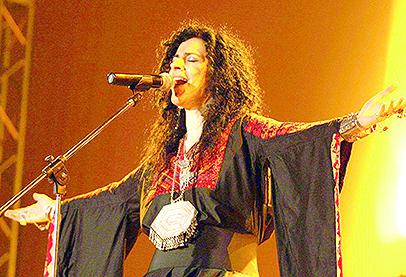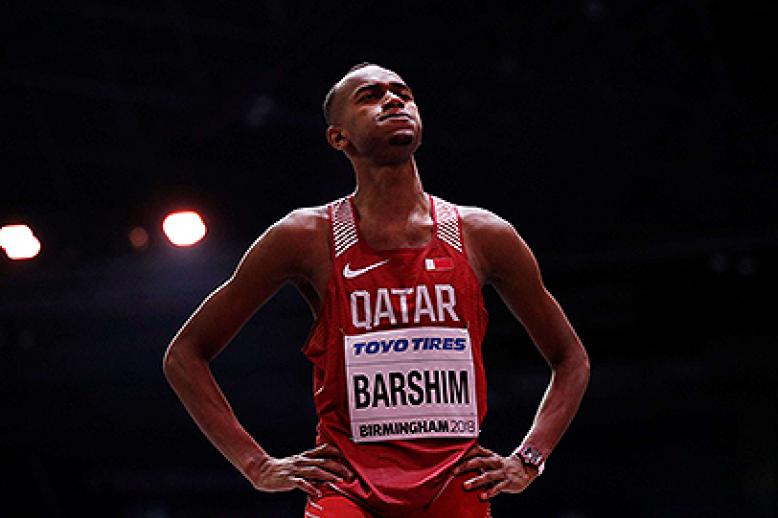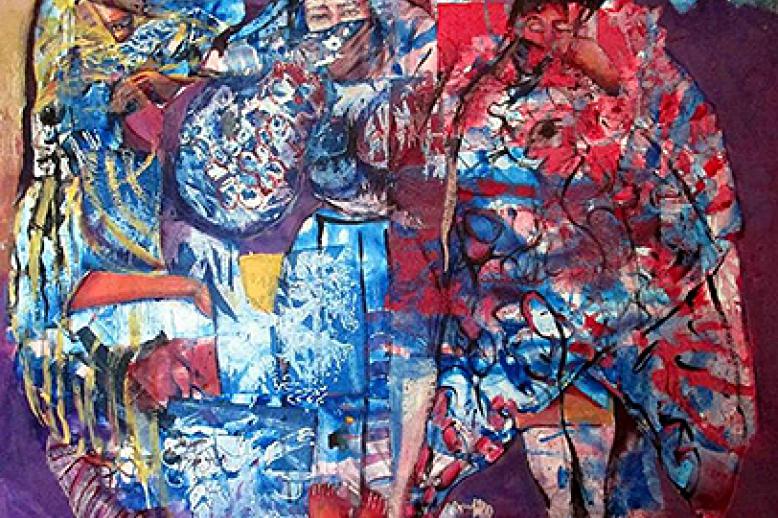Farewell to Rim Banna, Palestinian cultural icon

I never had the honour of meeting Rim Banna or hearing her sing in person but that did not stop me from shedding a tear when I heard she had succumbed to her illness a few days after Mother’s Day. She died March 24 in her birthplace, Nazareth, at the age of 51 after a 9-year battle with breast cancer.
My tears were for the loss of a Palestinian cultural icon and a supporter of justice whose smile lit up every photo or video I had seen of her. Her smile transcended borders and reached into every Palestinian home from China to Chile, from Finland to Cape Town.
If proof were needed of where her biggest love lay, it came during her funeral when mourners movingly recited “Mawtini”
(“My Homeland”), the unofficial national anthem of Palestine. Banna dedicated her life and much of her art to the homeland of 13 million Palestinians of all nationalities and faiths — Palestine.
Banna was a singer, composer, musical arranger and activist. She was immersed in Palestinian culture from an early age. Her mother is poet Zuhaira Sabbagh. Her formal musical education was undertaken at the Higher Music Conservatory in Moscow. That is where she met Ukrainian guitarist Leonid Alexeyenko, whom she married in 1991, a marriage that lasted 19 years. She raised their children alone from then on.
The training she had in Russia broadened her musical skills, which she skilfully applied to develop modern interpretations of traditional Palestinian songs. She was particularly successful in using her rapporteur of skills and talent to breathe new life into children’s songs and popular women’s melodies without divorcing them from their or her Palestinian roots.
Banna performed her music in a youthful, magical manner, which reached deep into the hearts of her audiences. Her music has been described as “haunting, emotional, at times bordering on kitsch.” She said her music was a means of cultural self-assertion.
She wrote and composed her own songs and added melodies to poetry, including works by Palestinian poets such as Mahmoud Darwish and Samih al-Qasim.
Her message often focused on the suffering of Palestinians. She sang of the stolen homeland, of the children of the refugee camps, of the bleeding youth of Gaza on the way to long-awaited freedom.
Where she could, Banna performed concerts, such as in Jerusalem and the West Bank. For places she could not reach in person, such as Gaza, she made webcasts to reach her fans.
Banna was not only an ambassador for Palestinian music and song but also for traditional Palestinian dress, as she was always clad in embroidered Palestinian clothing and large, antique silver jewellery.
Her cultural legacy consists of at least ten albums, stories, songs, thousands of words, films she appeared in and jewellery she designed.
Banna will be remembered for being one of the first artists to call for a cultural boycott of Israel. She could not understand the hypocrisy of artists whose work encouraged resistance and called for liberation but who also agreed to perform in an occupying country.
She applied the occupation theme to her battle with cancer, describing it as the occupier in her body. She resisted it with all her power, despite losing her wild, curly hair. Some of the most iconic photographs were of her with a shaved head, which enunciated her big eyes and a smile that lit the image, defiant and strong.
In 2016, Banna lost the ability to sing after cancer ravaged her vocal chords. Surgery could not resurrect her beautiful voice but she could still speak. “It’s not the same thing but I will continue to sing to my people, as long as I breathe,” she said then.
I bet Rim Banna is looking down on us with her beaming smile, happy that, even in death, she strengthened the bond between Palestinians and their homeland as more of her compatriots scoured the internet for her songs, which they will learn and hum for years.
Farewell, Rim Banna. You are in a better place but we promise you that the young will not forget Palestine and your music will outlast us all to provide them and generations after that, if need be, inspiration to carry on the fight for freedom, justice and equality.
Kamel Hawwash is a British-based Palestinian university professor and writer.
This article was originally published in The Arab Weekly.




